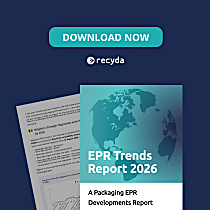US scientists uncover cheap zirconium-based catalyst to break down polyolefin plastics

12 Apr 2023 --- Researchers in the US from the Ames National Laboratory have discovered a way to turn single-use plastic packaging and other petroleum-based products into more environmentally friendly solutions.
The study authors claim that using an aluminum reactant and zirconium-oxide-based catalyst can change the chemical structure of polyolefin plastics (PO). The plastics are primarily hydrocarbons comprising long and unbreakable chains of carbon atoms.
The researchers tested their catalyst system on POs and broke down the carbon-carbon (CC) bonds in the material at a speed similar to that of more common platinum catalysts. The zirconium-oxide-based catalyst offers a new cheap and effective way to break down POs.

“Typically, polymer waste is not pure and isn’t supplied as a clean and perfectly dry starting material. Using a zirconium hydride catalyst, you’d have to worry about impurities that inhibit the chemistry,” says Aaron Sadow, one of the study’s authors.
Zirconium-oxide-based catalyst
POs are not able to be easily decomposed due to their hydrocarbon bonds. They do not have any additional atoms in their chemical structure to facilitate the addition of extra elements that could trigger their breakdown.
POs can be upcycled if not fully degraded by implementing the hydrogenolysis process. Hydrogenolysis involves a catalyst to cut through the carbon-carbon bonds and introduce hydrogen atoms.
The authors suggest that scientists have been using rare and expensive metals like platinum as a catalyst for this process, making it both an expensive and non-scalable approach. Instead, the Ames National Laboratory scientists use zirconia, a cheap and earth-abundant material, to break down POs. A diagram showing the zirconia-catalyst system (Image credit: Chen, S., Tennakoon, A., You, KE. et al., 2023/Nature Catalyst).
A diagram showing the zirconia-catalyst system (Image credit: Chen, S., Tennakoon, A., You, KE. et al., 2023/Nature Catalyst).
Zirconia is less reactive than other metals currently used as catalysts, such as platinum. The study’s authors designed a sandwich-like catalyst system that incorporated zirconium alkoxide nanoparticles as catalysts placed between two mesoporous silica-alumina plates as reactants.
The ability to change the structure of the hydrocarbons in POs could also lead scientists to develop more durable PO products.
Expanding on previous research
Currently, precious metal catalysts and aggressive reagents transform plastics into valuable materials with high costs and limited selectivity.
Meanwhile, scientists from the University of York, UK, recently found that nickel from farming soil can break down PE into hydrogen and hydrocarbons to support the chemicals industry.
However, nickel is a more expensive metal and therefore adds to the cost of breaking down plastics.
Sadow’s team previously used a catalyst to break the CC bonds in these hydrocarbon chains and simultaneously attached aluminum to the ends of the smaller chains. Next, they inserted oxygen or other atoms to introduce functional groups. To develop a complementary process, the team found a way to avoid the CC bond-breaking step.
The catalyst converts materials such as motor oil, soft plastics, water or milk bottles, caps and natural gas into valuable materials repurposed into biodegradable packaging. Now, the research extends to using zirconium to break down POs to create more eco-friendly products from the output.
By Sabine Waldeck











